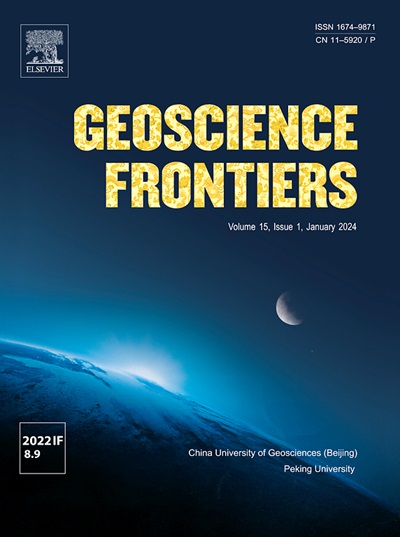How energy intensity and global energy dynamics shape renewable energy transition in APEC economies
IF 8.9
1区 地球科学
Q1 GEOSCIENCES, MULTIDISCIPLINARY
引用次数: 0
Abstract
This study examines the critical factors influencing the adoption of modern renewable energy in selected APEC countries from 1997 to 2023, with a focus on their implications for sustainable development and environmental sustainability. Using dynamic panel data estimation techniques (Arellano–Bond and system dynamic panel-data estimation), we analyze the interplay between energy intensity, world energy balances, economic globalization, and the shadow economy in shaping the share of modern renewables in total final energy consumption. Our results indicate that higher energy intensity reduces renewable energy adoption, reflecting systemic challenges in integrating clean energy into high-demand systems. Conversely, world energy balances and economic globalization enhance renewable energy penetration, driven by decarbonization policies, technological advancements, and cross-border collaboration. Surprisingly, the shadow economy also plays a positive role, suggesting that informal sector activities may facilitate small-scale renewable energy investments. From a sustainability perspective, these findings underscore the need for APEC economies to prioritize energy efficiency, strengthen international cooperation, and implement inclusive policies that support renewable energy transitions. By addressing structural barriers and leveraging globalization, APEC nations can accelerate progress toward Sustainable Development Goals (SDGs), particularly SDG 7 (Affordable and Clean Energy) and SDG 13 (Climate Action). Policymakers are encouraged to design targeted interventions, including green financing mechanisms, technology transfer programs, and regulatory incentives, to align economic growth with long-term environmental sustainability.

能源强度和全球能源动态如何影响亚太经合组织经济体的可再生能源转型
本研究考察了1997年至2023年间影响APEC国家采用现代可再生能源的关键因素,重点研究了这些因素对可持续发展和环境可持续性的影响。利用动态面板数据估计技术(Arellano-Bond和系统动态面板数据估计),我们分析了能源强度、世界能源平衡、经济全球化和影子经济在塑造现代可再生能源在最终能源消费总量中的份额方面的相互作用。我们的研究结果表明,较高的能源强度降低了可再生能源的采用,反映了将清洁能源整合到高需求系统中的系统性挑战。相反,在脱碳政策、技术进步和跨境合作的推动下,世界能源平衡和经济全球化促进了可再生能源的渗透。令人惊讶的是,影子经济也发挥了积极作用,表明非正规部门的活动可能促进小规模的可再生能源投资。从可持续发展的角度来看,这些发现强调了亚太经合组织经济体需要优先考虑能源效率,加强国际合作,实施支持可再生能源转型的包容性政策。通过解决结构性障碍和利用全球化,亚太经合组织国家可以加速实现可持续发展目标,特别是可持续发展目标7(负担得起的清洁能源)和可持续发展目标13(气候行动)。鼓励政策制定者设计有针对性的干预措施,包括绿色融资机制、技术转让项目和监管激励措施,使经济增长与长期环境可持续性保持一致。
本文章由计算机程序翻译,如有差异,请以英文原文为准。
求助全文
约1分钟内获得全文
求助全文
来源期刊

Geoscience frontiers
Earth and Planetary Sciences-General Earth and Planetary Sciences
CiteScore
17.80
自引率
3.40%
发文量
147
审稿时长
35 days
期刊介绍:
Geoscience Frontiers (GSF) is the Journal of China University of Geosciences (Beijing) and Peking University. It publishes peer-reviewed research articles and reviews in interdisciplinary fields of Earth and Planetary Sciences. GSF covers various research areas including petrology and geochemistry, lithospheric architecture and mantle dynamics, global tectonics, economic geology and fuel exploration, geophysics, stratigraphy and paleontology, environmental and engineering geology, astrogeology, and the nexus of resources-energy-emissions-climate under Sustainable Development Goals. The journal aims to bridge innovative, provocative, and challenging concepts and models in these fields, providing insights on correlations and evolution.
 求助内容:
求助内容: 应助结果提醒方式:
应助结果提醒方式:


